Backpacking with eggs is fun and easy to carry. Eggs are a great source of protein and are perfect for backpacking. They’re lightweight, don’t take up much space, and can be eaten many different ways.
Eggs can last for about one week when properly stored in the right conditions. If you’re planning on taking eggs on your next backpacking trip, consider these tips. Outdoor cooking with eggs is more easier than you thought.
Contents
Everyone has a different experience when backpacking. My recommendation is to make your own decisions while embarking on a backpacking journey, but I want to share my story and blog about what I’ve learned about backpacking with eggs.
To backpack with eggs, do what I did for years. Buy a pack of battery-powered egg warmers; These nifty little devices cost only a few bucks and stick in your sleeping bag to keep those little suckers all nice and toasty while you sleep at night.
Battery Powered Food warmmers you can checkout
This simple solution not only saves you the heartache of an inedible rubbery shell surrounding a half-cooked yolk, but it also keeps you from bringing along a cooler full of ice or having to eat your eggs cold.
Their are so many egg recipes for backpacking that you buy right now and make your backpacking lot more easier than you thought.
Backpacking with eggs
Eggs are one of the most versatile foods you can take backpacking. They can be eaten fried, scrambled, or hard-boiled, and they’re a good source of protein and fat. They’re also lightweight and easy to cook in the woods.
If you’re going to be out for more than a day, it’s worth considering taking some eggs with you. You can carry them in their shells or boil them into an egg-shaped blob of protein before packing them in your pack.
There are other lightweight egg meals you can consider as well and it will help you a lot. Going to backpacking with eggs it’s completely mind-blowing and fun, since it will reduce the amount of load to be carried.
Hard-boiled Eggs
The easiest way to prepare eggs for backpacking is to boil them before leaving home. This gives you plenty of time for cooking as well as a chance to pack them in their shells. Check below for the only packed hardboiled egg you can find today.
You’ll want to use extra water so that the eggs float freely in the pot; this make them easier to peel later on because they won’t stick together as much during cooking.
Add one teaspoon of salt per quart of water before bringing it to a boil; this will help keep bacteria from growing inside the egg while still allowing it to absorb flavor from the cooking liquid when added after boiling has finished.
After the boiling has finished, drain off most of the water (leaving enough behind so that the egg doesn’t fall apart when you’re eating it). The hard part is done! The next step is to get your eggs out of the shell.
The easiest way to do this is to tap the top of your pot on a hard surface until the shell cracks, then peel away the shell. This works best with small or medium eggs.
If you’re using jumbo eggs, use a large needle or small nail to poke holes in both ends of each egg, then use your fingers to squeeze them out.
How Long Do Hard Boiled Eggs Last Unrefrigerated?
Hard-boiled eggs can last unrefrigerated for about 2 hours. After that, they should be refrigerated to prevent bacterial growth and ensure food safety.
It is important to note that leaving hard-boiled eggs unrefrigerated for extended periods can increase the risk of spoilage and foodborne illness.
So, if you’re planning to bring hard-boiled eggs on a backpacking trip, it’s best to consume them within a couple of hours or keep them in a cooler with ice packs to maintain their freshness.

Dehydrated Egg Options
When it comes to lightweight and convenient backpacking food options, dehydrated eggs are a stellar choice for their portability, nutritional value, and ease of preparation.
Whether you’re embarking on a multi-day trek or camping in the wilderness, dehydrated eggs offer a protein-packed solution without adding significant weight to your pack.
These eggs are dehydrated using advanced technology, removing the moisture while preserving essential nutrients. This dehydration process results in a lightweight and compact product that can be easily rehydrated with water at your campsite.
One of the key advantages of dehydrated eggs for backpacking is their versatility. They can be used in various recipes, from classic scrambled eggs to omelets, making them a versatile ingredient for your outdoor culinary adventures.
Additionally, dehydrated eggs have a longer shelf life compared to fresh eggs, ensuring they stay fresh throughout your backpacking trip. This makes them an ideal choice for those who want a reliable and durable food option that won’t spoil quickly.
Dehydrated Egg Packs You Can Checkout
When searching for dehydrated egg options for backpacking, consider looking for brands that prioritize quality and taste. Some options come in individual serving pouches, minimizing the need for measuring and reducing waste.
Opt for products that are easy to rehydrate, requiring minimal cooking equipment, and are enriched with essential vitamins and minerals.
With dehydrated eggs in your backpacking arsenal, you can enjoy a lightweight, protein-rich meal that fuels your adventures without compromising on taste or nutrition.

Use A Backpacking Egg Container.
If you’re going to be backpacking and you want to include eggs in your food supply, I recommend using a backpacking egg container. These containers are lightweight, easy to clean and store, and can be used for other foods besides eggs.
Eggs are perfect for backpacking because they don’t need refrigeration (which is important if your destination does not have reliable electricity), they have lots of protein that will keep you full longer than other foods would, and they taste great!
The best backpacking egg container will be lightweight, easy to clean and store, and can be used for other foods besides eggs.
Eggs are perfect for backpacking because they don’t need refrigeration (which is important if your destination does not have reliable electricity), they have lots of protein that will keep you full longer than other foods would, and they taste great!
Read more articles: How to Backpack with Eggs?
You Can Dehydrate Your Eggs.
The easiest way to dehydrate eggs is to crack them into a bowl, whisk them together with salt and pepper, and then pour them onto a baking sheet.
Bake at 200 degrees F for about two hours. You can store your dried eggs in an airtight container for up to six months or freeze them indefinitely.
If you’re looking for a quicker way to dehydrate eggs, you can use a food dehydrator.
This method is best if you want to make large quantities of dried eggs or if you’re planning on using them in recipes that call for dried egg whites (like meringues).
To dehydrate eggs in a food dehydrator, place the cracked eggs on a baking sheet and put them into your food dehydrator.
Set it to 145 degrees F for at least 12 hours until they’re completely dried out. You can store your dried eggs in an airtight container for up to six months or freeze them indefinitely.
To dehydrate eggs in a food dehydrator, place the cracked eggs on a baking sheet and put them into your food dehydrator.
Set it to 145 degrees F for at least 12 hours until they’re completely dried out. You can store your dried eggs in an airtight container for up to six months or freeze them indefinitely.
Afforadable backpacking stove
Top pick
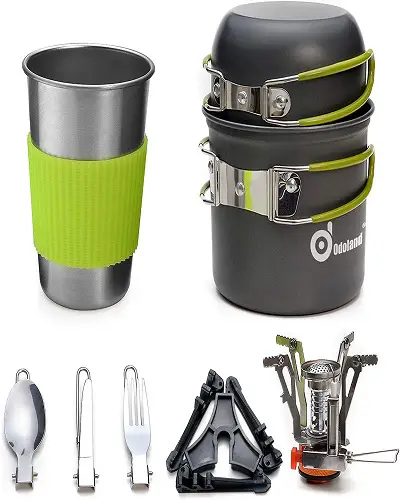
Editor’s choice
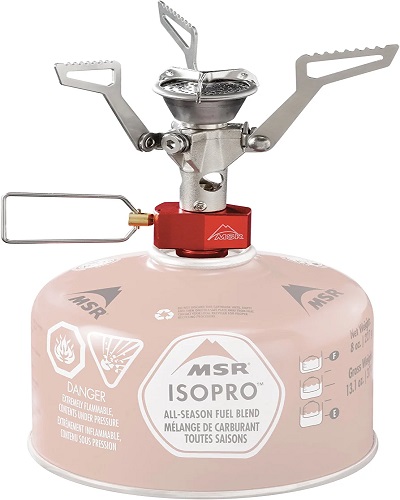
Best value
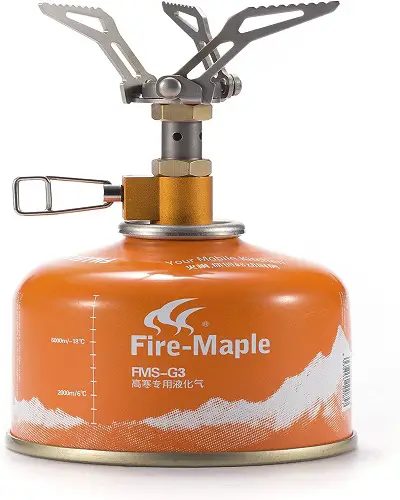

Raw Eggs: How long do they last unrefrigerated?
Raw eggs can last unrefrigerated for a short period of time, usually up to 2 hours, depending on the temperature and humidity conditions.
However, to ensure food safety and minimize the risk of bacterial contamination, it is recommended to refrigerate raw eggs as soon as possible.
Refrigeration helps to slow down the growth of bacteria and ensures the eggs stay fresh for a longer period of time.
If you are planning on taking raw eggs on a backpacking trip, it is advisable to pack them in a cooler with ice packs or thermal insulation to maintain a safe temperature.
Keep in mind that improperly stored eggs can pose health risks, so it’s important to prioritize food safety when backpacking.
How long do dehydrated eggs last?
Dehydrated eggs are shelf-stable and will keep for up to 5 years if stored at room temperature or up to 10 years if stored in a freezer.
How long does a dried egg last? The shelf life of a dehydrated egg is about 1 year, but it can be extended to 4 or 5 years with proper storage conditions.
Dehydrated eggs are treated with sulfur dioxide and hydrogen peroxide to prevent contamination. In addition, they are vacuum sealed in foil pouches with oxygen absorbers.
Dehydrated eggs have an indefinite shelf life as long as they are kept sealed and stored away from moisture and humidity.
How long do dehydrated eggs last in the pantry? Dehydrated eggs have a shelf life of one year when kept at room temperature (15–30 degrees C).
Read more articles: How to Pack Eggs for Backpacking?
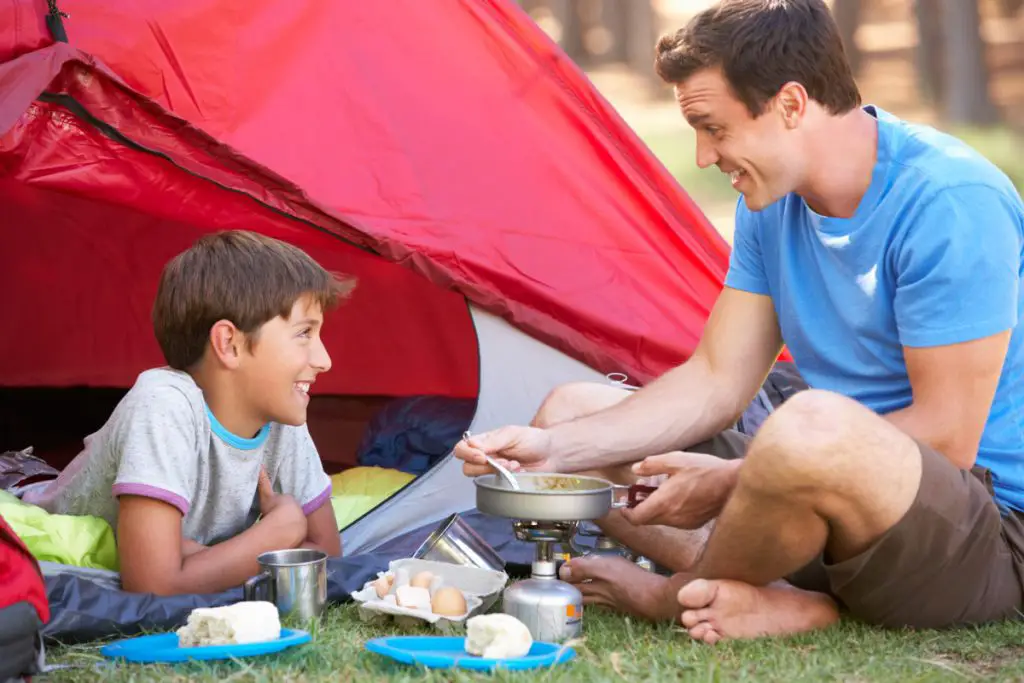
You Can Pack Hard-boiled Eggs.
To keep them from breaking when you are packing, put the eggs in a Tupperware container with a lid and freeze them for about 10 minutes to firm up the shells.
This will make them easier to peel after they have been cooked. You can then store them in your freezer until you are ready to go backpacking.
Hard-boiled eggs will last up to two weeks if you store them properly at home and/or while traveling. To pack hard-boiled eggs, first freeze them for about 10 minutes. This will make them easier to peel after they have been cooked.
You can then store them in your freezer until you are ready to go backpacking. Hard-boiled eggs will last up to two weeks if you store them properly at home and/or while traveling.
How long do hard-boiled eggs last?
Hard-boiled eggs have a shelf life of 7 to 10 days when stored in a refrigerator. To ensure that you have fresh, safe hard boiled eggs, check the sell-by date on the package and use them within one week of purchase.
Once opened, store any unused hard-boiled eggs in an airtight container or resealable bag in the refrigerator for up to one week.
Hard-boiled eggs will keep longer if you store them in your refrigerator than if you leave them out at room temperature. Hard-boiled eggs can be frozen for up to a year with little change in quality.
How to Carry Eggs Safely
Carrying eggs safely while backpacking or camping is important to prevent any mess or spoilage. Here are some tips on how to carry eggs safely:
- Use a sturdy container: Invest in a durable egg container specifically designed for carrying eggs. These containers usually have a hard-shell exterior and individual compartments to hold each egg securely, preventing them from cracking or breaking.
- Pack them in a padded bag: If you don’t have an egg container, wrap each egg individually in soft materials like clothing, towels, or bubble wrap. Place the wrapped eggs in a padded bag or insulated cooler to provide extra protection from any impact or temperature changes.
- Store separately from heavy items: Eggs are delicate and can easily break if they come into contact with heavy or rough objects. Keep them separate from other heavy items in your backpack or cooler to prevent any crushing or cracking.
- Keep them cool: Eggs should be stored at a cool temperature to maintain their freshness. If you have access to a refrigerator or cooler, place the egg container or bag in the cooler with ice packs to keep them cool. Make sure the eggs are not exposed to direct contact with ice or freezing temperatures, as this can cause freezing and spoilage.
- Consider powdered or dehydrated eggs: If you’re concerned about carrying fresh eggs, you can opt for powdered or dehydrated eggs instead. These options are lightweight, non-perishable, and easy to rehydrate when you’re ready to cook.
By following these tips, you can safely carry eggs while backpacking or camping and enjoy them during your outdoor adventures without any worries.
Safe eggs carrier
Read more articles: Can You Take Eggs Backpacking?

You Can Store Your Eggs In A Cooler.
You can store your eggs in a cooler, but remember that eggs will keep for up to four days if you keep them cold. The best way to store your eggs is by placing them in an egg carton and then putting them into a plastic bag.
This will help keep the moisture out, reducing the chance of spoilage and helping your eggs stay fresh longer. When storing your eggs in a cooler, make sure that they are not touching each other or anything else within the cooler.
If possible, you may also want to place ice packs around the egg cartons so they don’t shift around too much during travel and break open on any hard surfaces within the cooler itself (such as plastic containers).
Portable Camping & Backpacking Cooler You Can Checkout
When it comes to storing your eggs, you want to make sure that they aren’t exposed to too much heat or cold.
If your eggs are stored in a warm environment for too long, then the yolk will start to cook and eventually turn brownish-gray as it cooks completely through.
The same is true if you store them in a refrigerator that’s too cold; this can cause condensation on the outside of the shell, which will also lead to spoilage.
The best way to store your eggs is by placing them in an egg carton and then putting them into a plastic bag.
This will help keep the moisture out, reducing the chance of spoilage and helping your eggs stay fresh longer. When storing your eggs in a cooler, make sure that they are not touching each other or anything else within the cooler.
If possible, you may also want to place ice packs around the egg cartons so they don’t shift around too much during travel and break open on any hard surfaces within the cooler itself (such as plastic containers).

Camping Egg Preparation How Is It Done?
For a delightful camping egg preparation, crack eggs into a sealable plastic bag and add desired ingredients like diced veggies and shredded cheese. Squeeze out excess air, seal the bag, then place it in simmering water for 10-15 minutes.
This mess-free method ensures a hassle-free breakfast in the great outdoors. Elevate your camping experience with our easy, no-fuss egg recipe perfect for fueling your adventures. Explore more camping recipes and tips for a memorable outdoor getaway.
Other portable egg dishes
Here are some other portable egg dishes to consider:
- Egg Muffins: These are easy to make by whisking eggs with your favorite ingredients like vegetables, cheese, and cooked bacon or sausage. Pour the mixture into a muffin tin and bake until set. They can be enjoyed warm or chilled.
- Egg Salad Wrap: Hard-boil some eggs, chop them up, and mix with mayonnaise, mustard, and seasonings to make an egg salad. Spread the egg salad on a tortilla or wrap, add some lettuce or other veggies, and roll it up for a delicious portable meal.
- Frittata Squares: Similar to egg muffins, frittata squares are baked in a square baking dish and then cut into individual portions. You can include various ingredients like spinach, mushrooms, onions, and cheese for added flavor.
- Egg and Veggie Quesadillas: Scramble some eggs with diced vegetables like bell peppers, onions, and tomatoes. Spoon the mixture onto a tortilla along with shredded cheese and fold it in half. Heat it on a griddle or pan until the cheese is melted and the tortilla is crispy.
- Deviled Eggs: Hard-boiled eggs are halved and the yolks are mixed with mayonnaise, mustard, and other seasonings. The mixture is then spooned back into the egg white halves, creating a portable and tasty snack.
Remember to keep these dishes refrigerated during transport to ensure food safety. Enjoy your portable egg dishes!

Camping Egg Carrier
When it comes to camping egg carriers, there are a few options to consider. Here are some popular choices:
Egg Storage Containers: These containers are specially designed to hold eggs securely during camping trips. They often have individual compartments to prevent the eggs from cracking or breaking. Look for containers made of durable materials like plastic or silicone that are lightweight and easy to clean.
Egg Cartons: If you’re looking for a budget-friendly option, reusing cardboard egg cartons can work well. Simply place your eggs in the carton and secure it with a rubber band or tape to prevent them from falling out. Keep in mind that cardboard cartons are not as sturdy as dedicated egg carriers and may not provide as much protection.
Plastic Egg Sleeves: Another option is plastic egg sleeves, which are individual holders that can keep eggs safe during transport. These sleeves are often made of durable plastic and have a secure closure to prevent any accidents. They are compact and lightweight, making them convenient for camping trips.
DIY Solutions: If you’re feeling creative, you can also make your own camping egg carrier using materials like foam, cloth, or even empty yogurt containers. Cut out individual compartments and secure the eggs in place to prevent them from moving around.
Remember to always handle eggs with care and keep them in a cool and dry place to maintain their freshness.
Whether you choose a dedicated egg carrier or a DIY solution, make sure it provides enough protection to keep your eggs intact during your camping adventure.
Enjoy your camping trip and delicious meals with eggs!
Read more articles: Taking Fresh Eggs Backpacking

Sustainable Backpacking with Eggs
When it comes to sustainable backpacking with eggs, here are a few tips to keep in mind:
- Choose reusable packaging: Instead of buying eggs in disposable cartons, consider purchasing them from local farmers or markets where you can bring your own reusable container.
- Opt for powdered eggs: Powdered eggs are a lightweight and convenient alternative for backpacking. They have a longer shelf-life, require no refrigeration, and reduce the risk of broken eggs in your backpack.
- Plan your meals: Before your trip, plan your meals to ensure you use the eggs efficiently. Consider using them for breakfast scrambles, omelets, or in baking recipes.
- Proper egg storage: If you decide to carry fresh eggs, make sure to store them securely in a hard-shell container to prevent breakages. Additionally, keep them away from other ingredients to avoid cross-contamination.
- Minimize waste: If you have leftover eggs, be mindful of proper waste disposal while backpacking. Pack out any eggshells, and avoid dumping them in natural habitats or bodies of water.
- Consider alternate protein sources: While eggs can be a great source of protein, if you’re concerned about sustainability, consider incorporating other plant-based protein sources into your backpacking meals, such as legumes, nuts, and seeds.
Remember, practicing Leave No Trace principles and minimizing your environmental impact is crucial for sustainable backpacking. Enjoy your adventure while respecting and preserving nature!
Trail-friendly Egg Dishes for Hikers
Trail-friendly Egg Dishes for Hikers
When it comes to trail-friendly egg dishes for hikers, it’s important to consider meals that are lightweight, easy to prepare, and can withstand the demands of backpacking. Here are some ideas that are delicious and easily portable:
- Egg Muffins: Make egg muffins by whisking eggs with your favorite ingredients like diced vegetables, cheese, and cooked bacon or sausage. Pour the mixture into a muffin tin or silicone molds and bake until set. These can be enjoyed warm or chilled on the trail.
- Egg Wrap: To make an egg wrap, scramble eggs with your desired fillings, such as chopped vegetables and cooked meat. Pour the mixture into a non-stick pan or compact skillet and cook until the eggs are set. Place the cooked eggs onto a tortilla or wrap, add some greens or other toppings, and roll it up tightly for a portable and satisfying meal.
- Hard-Boiled Eggs: Hard-boiled eggs are an excellent on-the-go protein source. Boil a few eggs before your hiking trip and store them in a secure container. Pack the individually wrapped eggs in your backpack for a quick and easy snack on the trail.
- Egg and Cheese Sandwich: Prepare an egg and cheese sandwich by frying or scrambling an egg in a small pan or pot. Place it between two slices of bread or a bagel, and add your favorite cheese along with any desired toppings like avocado or tomato. Wrap the sandwich tightly in foil or a reusable wrap for a hearty and filling meal.
- Egg Salad Wrap: Make egg salad by chopping hard-boiled eggs and mixing them with mayonnaise, mustard, diced vegetables, and seasonings. Spread the egg salad onto a tortilla or wrap, add lettuce or other greens, and roll it up for a protein-packed, trail-friendly meal.
Remember to pack your egg dishes in leak-proof containers and keep them chilled with an ice pack or in a cooler to maintain freshness. Enjoy these trail-friendly egg dishes during your hiking adventures!
Affoardable backpacking sleeping bag
Top pick
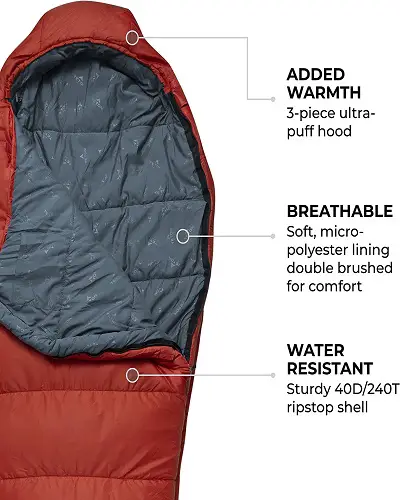
Editor’s choice
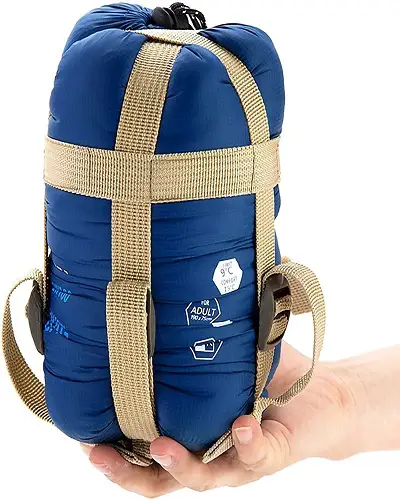
Best value
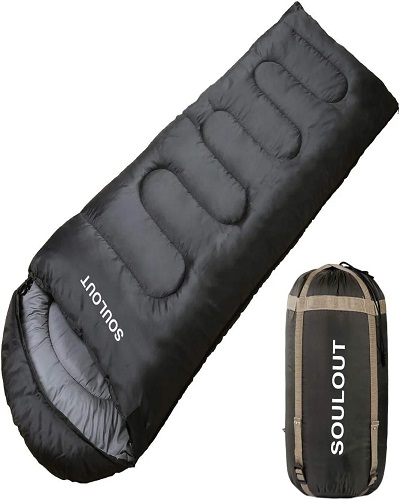
Conclusion
We hope this guide has helped you discover the best way to pack your eggs for your next hiking trip. If you are not sure which method is best for you, we recommend trying out some of these tips so that you can determine what works best for your needs.
Long-distance backpacking presents a different set of challenges than shorter, more dayhike-ooriented trips. The food you pack must be lightweight but nutritious, and that can sometimes be a difficult balancing act.
But there are ways to work around the limitations of backpacking food and make your meals delicious eggs are one of the best tools for doing this. Ultimately, the decision about what to pack comes down to the priorities of the individual backpacker.
Some people will be happy with a basic cooking option, while others will go for added conveniences and luxury. The key is to find a good balance that fits your particular wants and needs.
Read more articles: Seattle to Yellowstone Road Trip

FAQ
-
Can you bring eggs backpacking?
On any hiking trip, eggs are an excellent source of protein and fat. They make a great trail snack since they have a high calorie to weight ratio.
-
How do you cook eggs while backpacking?
whirl eggs. When the eggs are ready, add them along with the salt and red pepper flakes. Cook for 5 minutes. Mixture should be spread out on dehydrator trays and dried for 4 hours at 145 degrees. Put items in zip-top bags.
-
Can you take eggs on a camping trip?
Therefore, keep eggs in mind to carry in your cooler while making plans for your next camping trip. Eggs are not only a tasty snack, but they can also help keep your food cold, ignite fires, and provide you with a fun activity to do with your kids.
-
How long do eggs last hiking?
Simple: two weeks. Fresh eggs really survive longer than unrefrigerated hard-boiled eggs because they naturally contain chemicals that destroy germs. In other words, you don’t need to be concerned about spoiling if you pack as many eggs as you think you’ll want to eat (or carry—eggs are very heavy).

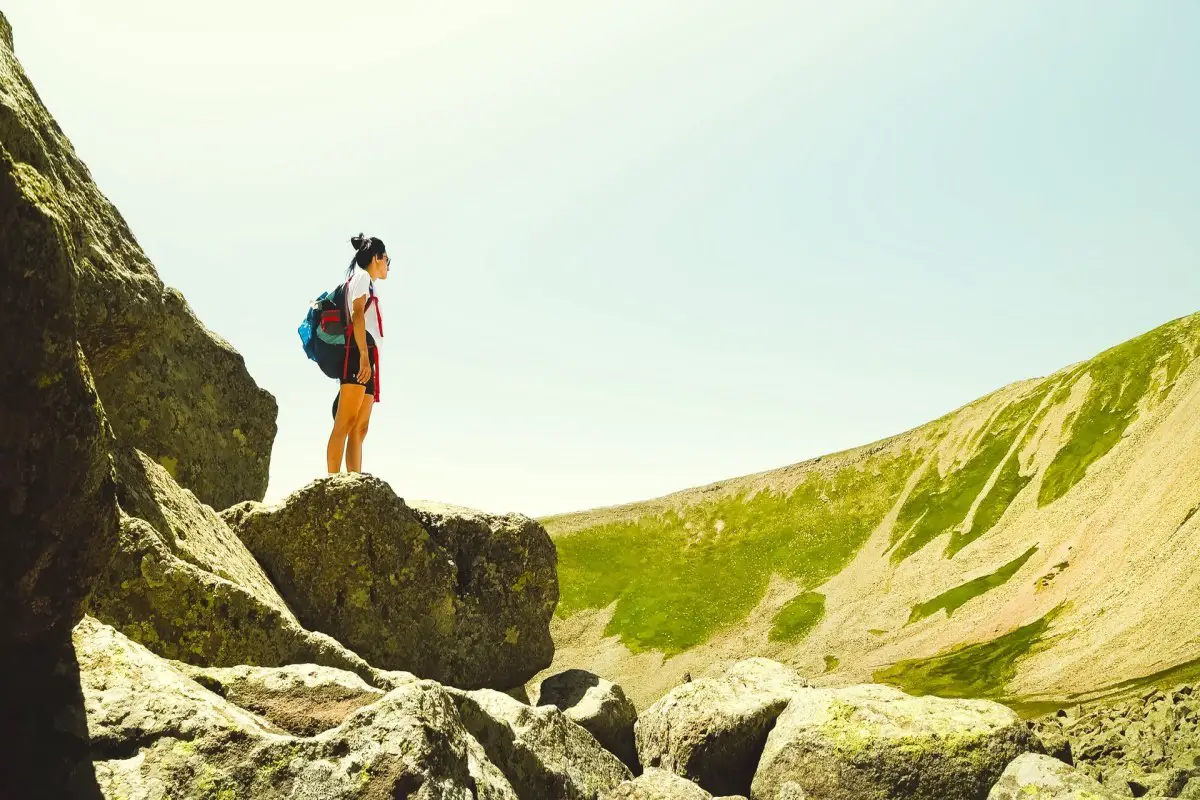






















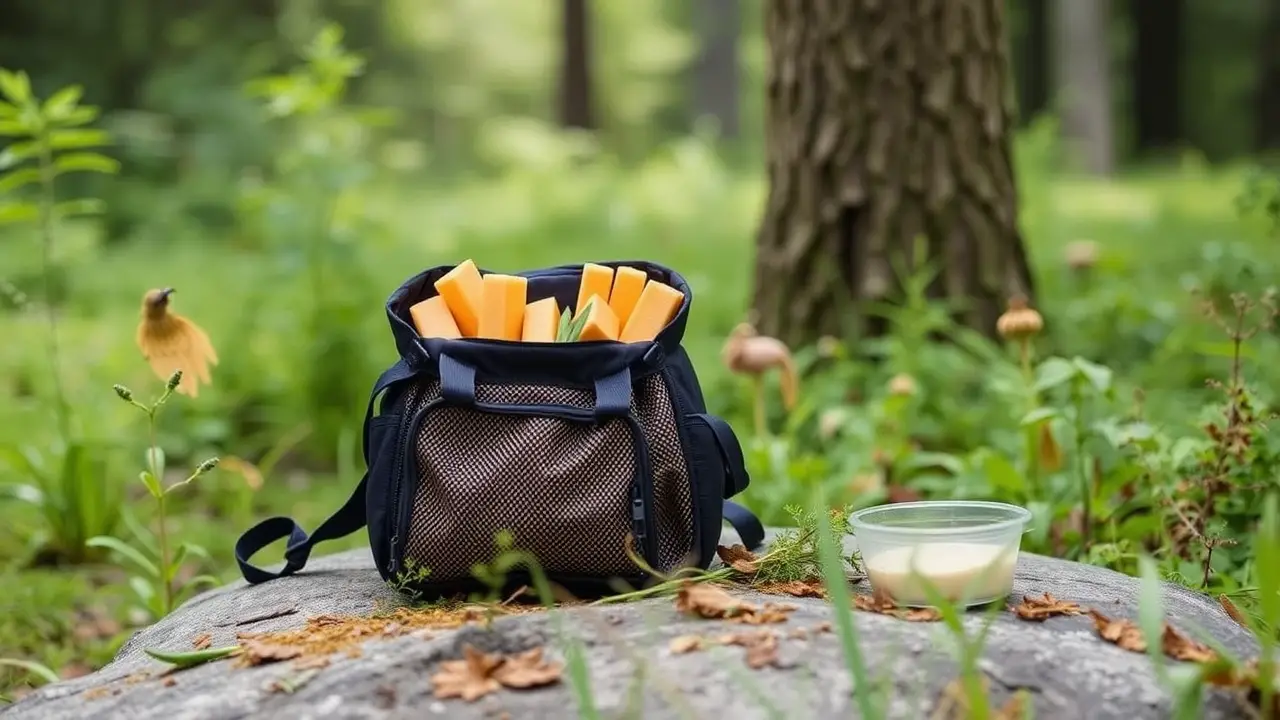
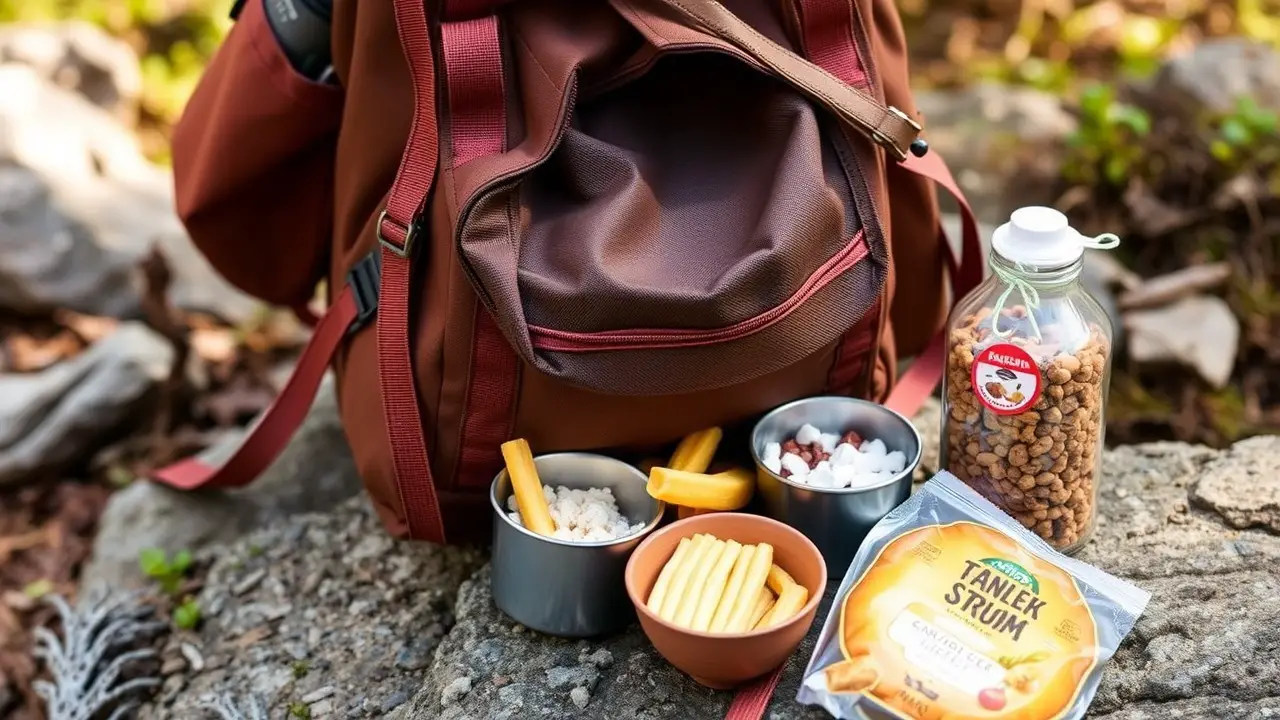

Leave a Reply